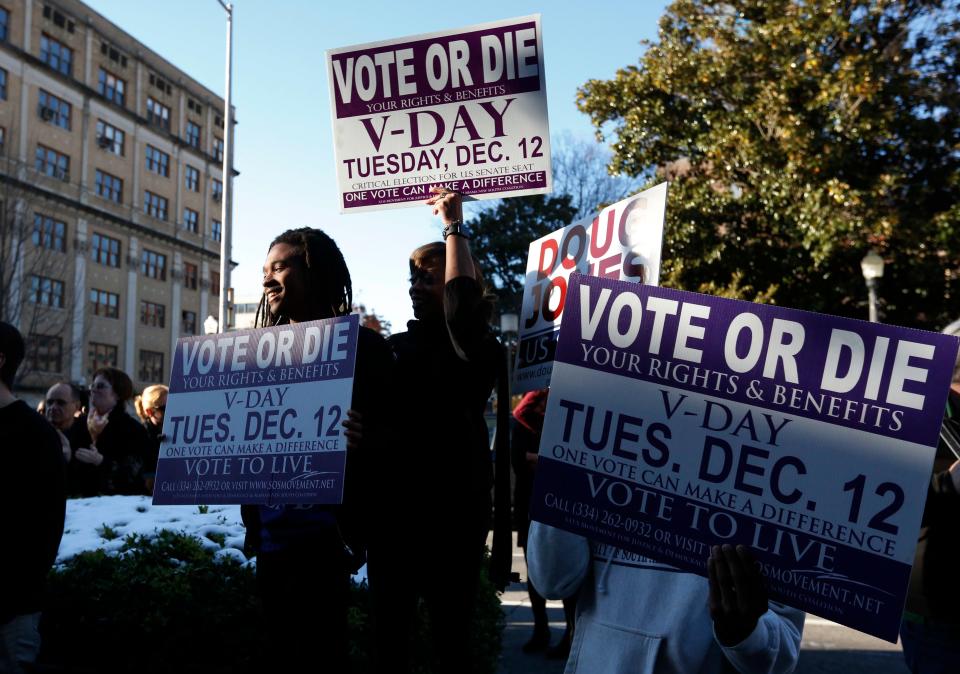Federal court strikes down Alabama congressional maps in showdown over Black voting power
- Oops!Something went wrong.Please try again later.
WASHINGTON − A federal court in Alabama on Tuesday once again struck down that state's congressional map for not including a second majority African American district, setting up another Supreme Court showdown that could help decide the balance of power in Congress after the 2024 election.
A three-judge panel of federal judges ruled that Alabama's latest congressional map likely violates the Voting Rights Act of 1965 because only one of seven districts has a majority of Black voters – even though African Americans make up 27% of the state's population. The landmark civil rights law banned discriminatory voting practices enacted in the South during Reconstruction.
"We are deeply troubled that the state enacted a map that the state readily admits does not provide the remedy we said federal law requires," the court said in its order blocking use of the maps. The court ordered a special master to draw the state's districts, asserting that it had "no reason to believe that allowing the legislature still another opportunity" would result in a map that created a second district in which Black voters could choose a candidate.
The decision is technically limited to Alabama but the legal battle will have significant ramifications in other states, especially in the South, and could give Democrats a major advantage in next year's election. The Alabama result will almost certainly influence similar legal battles over maps in Texas, Florida, Georgia and other states where the interplay between race, politics and redistricting has been fraught for decades.
Alabama to appeal redistricting decision to Supreme Court
Alabama Attorney General Steve Marshall's office said the state will appeal the decision.
"While we are disappointed in today’s decision, we strongly believe that the legislature’s map complies with the Voting Rights Act and the recent decision of the U.S. Supreme Court," said Amanda Priest, a spokeswoman for Marshall. "We intend to promptly seek review from the Supreme Court to ensure that the State can use its lawful congressional districts in 2024 and beyond."
Alabama's districts have already been before the U.S. Supreme Court this year: In a 5-4 decision in June, the Supreme Court rejected Alabama’s argument that a “race blind” approach to drawing congressional districts was permitted under the Voting Rights Act. Given a number of other high profile rulings in which the court weakened the provisions of the Voting Rights Act, the Alabama decision caught many experts by surprise.
The Supreme Court's decision sent the matter back to the Alabama Legislature, which drew a different map that still did not include a second African American district. Gov. Kay Ivey, a Republican, signed that map into law in July and the plaintiffs involved in the case quickly objected again in federal court − accusing the state of defying the Supreme Court's decision.

“We are gratified the court has seen through Alabama’s gamesmanship and once again rejected a congressional map that discriminates against Black voters," said Davin Rosborough, senior staff attorney, ACLU’s Voting Rights Project.
Alabama countered by noting that the Supreme Court's decision didn't require a proportional share of districts to the Black population. The latest version, the state argued, prioritized African American communities "to the fullest extent possible" while also attempting to keep other communities combined in the same district.
This article originally appeared on USA TODAY: Court rejects Alabama districts in showdown over Black voting power

